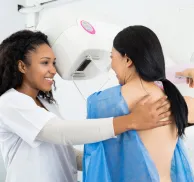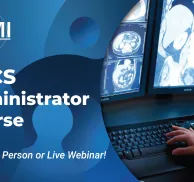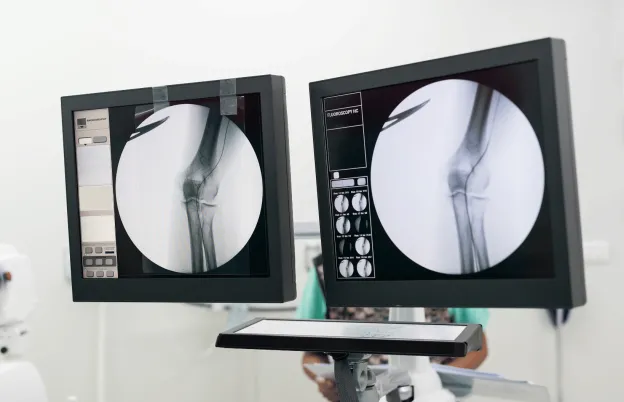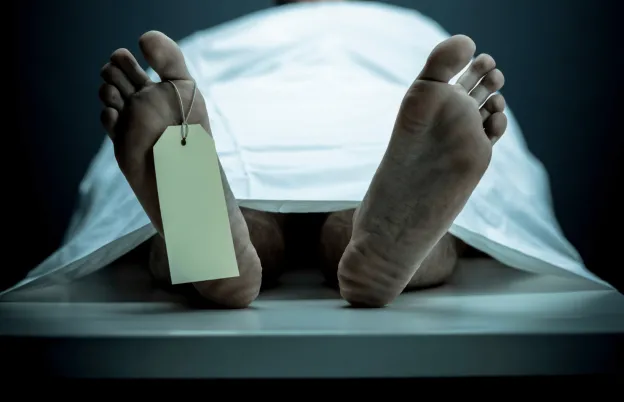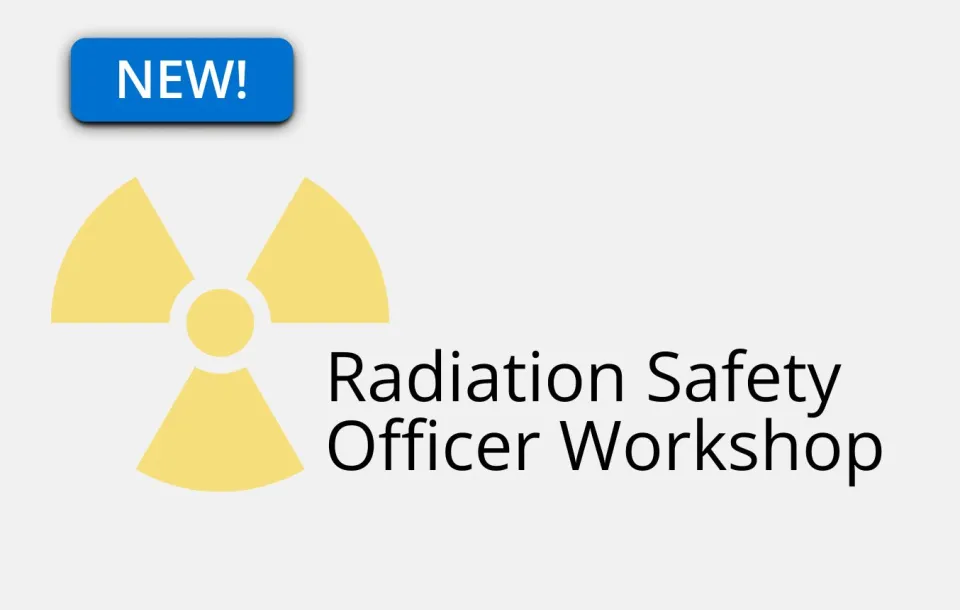
Hands-On Radiation Safety Officer Workshop
About this Program
This course is a 1.5 day hands-on Radiation Safety Officer workshop. It includes a detailed breakdown of what a good Radiation Safety Program should contain with information on performing audits, reviewing tie downs, and understanding the bounds of the Radioactive Materials License. Hands-on labs will include QC procedures for hot-lab equipment and exercises in building spill kits. A highlight of the program will be on developing attendees’ communication skills as needed to interface with hospital administrators, outside inspectors, patients, and various hospital staff that work in and around sources of radiation.
Hands On Labs
LAB A: Dose Calibrator QC Review
LAB B: Spill Response
LAB C: Well Counter
LAB D: SURVEY INSTRUMENT USE AND QC
Educational Objectives
By the end of this hands-on Radiation Safety Officer (RSO) workshop, attendees should be able to:
- Review and refresh their knowledge of Radiation Safety Program management, including audits, license reviews, qualifications, increased controls, and internal dosimetry
- Develop effective communication skills to advocate for patient and occupational safety and confidently engage with hospital administrators, NRC, and state inspectors
- Gain hands-on experience performing quality assurance (QA) on hot lab equipment such as dose calibrators, well counters, and survey meters, along with practical exercises in assembling spill kits
- Strengthen their ability to communicate important radiation safety items
Schedule
What this course will cover
Day 1 | |
8:00 AM | Build a Radiation Safety Program
|
9:00 AM | Documentation, Dosimetry, and Audits… Oh my!
|
9:50 AM | Discussion and Break |
10:00 AM | Engaging internal stakeholders in the radiation safety program: Radiation Safety Committee and Increased Controls
|
11:00 AM | Rad Onc for the RSO |
12:00 PM | Lunch Break |
1:00 PM | Lab Session 1 |
2:30 PM | Informal Discussions and Break |
2:45 PM | Lab Session 2 |
4:15 PM | RSO Case Studies with Q&A (1)
|
5:00 PM | Wrap Up and Discussion |
5:30 PM | Adjourn for the Day |
| |
7:45 AM | Coffee |
8:00 AM | Risk Communication Breakout Intro
|
8:15 AM | Lab: Risk Communication Breakout (1)
|
9:00 AM | Radiation Safety: Risk Communication
|
10:00 AM
| Radiation Safety in Theranostics
|
11:00 AM | Lab: Risk Communication Breakout (2) |
12:15 AM | Bag Lunch / Break |
12:30 PM | RSO Case Studies with Q&A
|
1:30 PM | Program Adjourned |
Audience
Who should attend?
The primary target audience is medical physicists who have the potential to be named RSO on a broad-scope Radioactive Materials License.
*Disclaimer: This will include basic RadSafety content. Specific state/local requirements may not be covered.
Program Faculty
Meet your presenter(s)
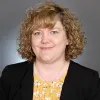
Jessica Clements
MS, DABR, FAAPM, FACR
Jessica Clements is a medical physicist and radiation safety officer at the University of Vermont Medical Center. She is certified in diagnostic and nuclear medical physics by the American Board of Radiology and has worked in clinical medical physics and radiation safety programs for large healthcare networks her entire career. She has extensive RSO experience overseeing multi-facility programs in Agreement States, managing both broad and specific scope radioactive materials licenses. Her work has involved all categories of radioactive materials used in healthcare, including those subject to increased controls. She has served in many capacities within AAPM, ACR, ABR, and CRCPD and was named a fellow of the AAPM in 2018 and the ACR in 2023.
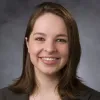
Nicole Murphy
MS, Program Director
Nicole E. Murphy is a Diagnostic Imaging Physicist and Assistant Professor with a robust background in both clinical medical physics and radiation safety leadership. She earned her Master of Science in Medical Physics in 2012 and completed a formal Radiation Safety Officer (RSO) preceptorship through the United States Air Force in 2014–2015. Nicole served as the RSO on a broad-scope radioactive materials license for five years, where she led comprehensive regulatory compliance efforts, oversaw safety protocols, and supported multidisciplinary teams in the safe use of ionizing radiation. Though she recently transitioned out of the formal RSO role, she remains deeply engaged in the institution’s radiation safety infrastructure as Chair of the Radiation Safety Committee and serves as the subject matter expert for radiation safety reviews on the Institutional Review Board (IRB). Her dual expertise in imaging physics and regulatory oversight positions her as a key resource for clinical operations, research compliance, and institutional safety policy.
Kent Fisher
MS in Health Physics, and MS in Enviromental Science
Kent Andrew Fisher is a Senior Health Physicist with over 20 years of experience in radiation protection and health physics. He began his career in 1999 by joining the U.S. Army, where he spent 9 years as a Health Physics Technician before earning his B.S. degree and commissioning as an officer. Kent served an additional 12 years as a Health Physicist officer, retiring in 2020. During his military career, Kent developed a comprehensive 200-hour training program to mentor aspiring health physicists and help them accumulate required preceptor hours. Since retiring from the Army, he has worked as a consultant Health Physicist with West Physics, supporting a broad range of clients. Kent holds multiple radioactive materials licenses across medical, industrial, educational, and government institutions, ranging from limited to broad scope. He earned his M.S. in Environmental Science in 2010 and an M.S. in Health Physics in 2016, blending practical experience with advanced academic knowledge. As an instructor for the Hands-On Radiation Safety Officer Course, Kent combines his extensive field experience, regulatory expertise, and hands-on teaching approach to prepare physicists to confidently manage radiation safety programs across diverse settings.
Jen Gersman
MHP, MS
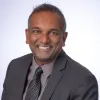
Neil Worlikar
MS
Neil Worlikar is a board-certified medical physicist and Director of Medical Physics at Advocate Health specializing in therapy medical physics. He holds a Master’s degree in Medical Radiation Physics, earned in 2005, and brings extensive expertise in radiation safety and oncology physics. Neil has served as a Radiation Safety Officer for over a decade across multiple hospital facilities within his healthcare system, overseeing radiation protection protocols and coordinating radiation safety committee meetings. As one of three state champions representing Illinois in the American Association of Physicists in Medicine (AAPM), Neil frequently collaborates with State of Illinois Inspectors during radioactive materials inspections and medical event evaluations. His combined background in Radiation Oncology and radiation safety positions him as a knowledgeable speaker on relevant medical physics and safety topics.
Credits
Accredited training programs
CAMPEP
This program provides 12.83 hours of continuing education for medical physicists. The program has been approved by CAMPEP for Medical Physics Continuing Education Credit (MPCEC) for qualified medical physicists.
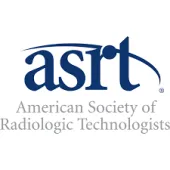
ASRT Category A
This program provides 14.25 hour(s) of Category A continuing education credit for radiologic technologists approved by ASRT and recognized by the ARRT® and various licensure states. Category A credit is also recognized for CE credit in Canada. You must attend the entire program to receive your certificate of completion.
Tuition

| Audience | Price | Early Price | Member Price | Member Early Price |
|---|---|---|---|---|
| Physicist | $1,065.00 | $970.00 | $1,020.00 | $925.00 |
| Technologist | $804.00 | $754.00 | $774.00 | $734.00 |
Early Pricing Guidelines
To qualify for Early registration rates, you must register at least 21 days before the program date.
Cancellation Policy
“Hands-On” Courses
Refunds, minus a $50 processing fee, will be granted for cancellations received prior to 10 days before the program. Cancellations received within 10 days of the program will receive a credit toward a future MTMI program, minus the $50 processing fee. No refunds will be made after the program starts. MTMI reserves the right to cancel any scheduled program because of low advance registration or other reasons. MTMI’s liability is limited to a refund of any program tuition paid. MTMI recommends that attendees use refundable airline tickets. In case of cancellation of a program for any reason, MTMI is not responsible for travel costs incurred by attendees including non-refundable airline tickets.
